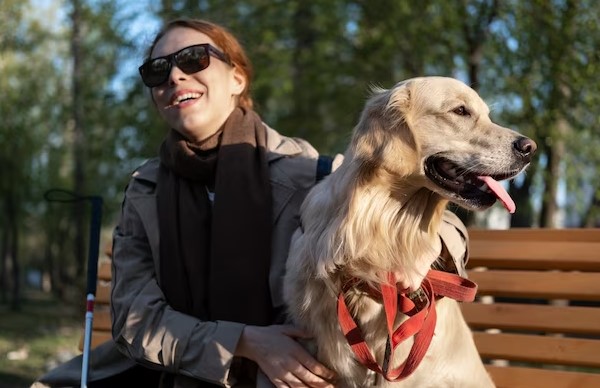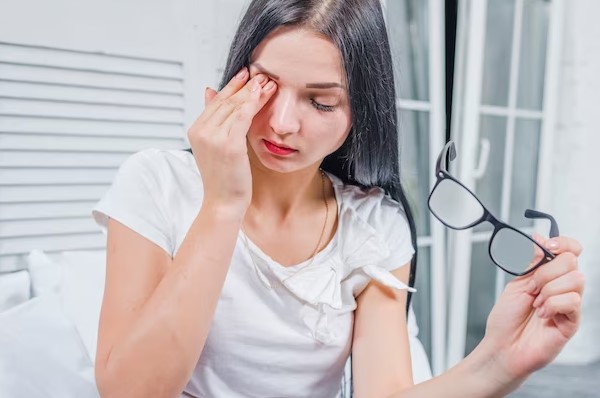Approximately 12 million people 40 years and over in the United States have vision impairment. Bad vision can make it harder to maintain the quality of life you want. You may have trouble seeing things up close or you may have difficulty driving at night.
You may also experience decreased productivity at work or home because of your vision problems. Fortunately, there are many ways to live an active and fulfilling life with vision impairment. By making a few simple adjustments to your environment and lifestyle, you can continue to enjoy many of the activities that you love.
If you are looking for tips for coping with poor eyesight, this short and simple guide is for you.
1. Get a Proper Diagnosis
If you are experiencing vision problems, get a proper diagnosis from an eye doctor. He or she can determine whether your eyesight is correctable. They can also give you advice about what works best for you.
This can help you make the right choices by choosing glasses, contact lenses, or vision therapy.
2. Get Regular Eye Exams
Eye doctors recommend you get a complete eye exam every one to two years. This allows them to detect any changes in your vision and any other problems with your eyes.
If you don’t get a complete eye exam, your vision may continue to worsen. You may also not be able to get the right treatment until it’s too late. You can find an eye doctor in your area using the American Optometric Associations directory.
3. Find Out About Assistive Devices
If you have a hard time seeing, many devices can help. These include eyeglasses, contact lenses, magnifying glasses, and more. You may also get assistive technology such as screen readers for computers or talking watches.
The best way to find out what assistive devices are available is to talk with an eye doctor. They can help you figure out which types of technology might be useful for you, and they can also refer you to other resources if needed.
4. Learn to Navigate Your Space
When you have low vision, its hard to navigate your space. You may not see clearly, or you may need extra time to get around. When you first enter a space, take your time. Walk around and get familiar with the layout of the room, including any furniture or other features that could be in your way.
If possible, ask someone to assist you. They can help make sure that there aren’t any obstacles in front of you, so you dont trip on them or run into them by accident.
5. Take Precautions when Driving
If you have low vision, driving can be a challenge. You may not see clearly, or it may take longer than usual to focus on faraway objects. If you drive, take precautions to prevent accidents. Make sure you have a high-quality windshield and good headlights.
If you need glasses or contact lenses for driving, wear them when youre behind the wheel. You may also want to get prescription sunglasses that help protect your eyes from glare and UV rays.
If you want information about driving with one eye, click here.
6. Consider Low-Vision Therapy
Low-vision therapy can help you use your remaining vision more effectively. A vision therapist will work with you to figure out whats best for your particular situation. You may need special equipment or exercises to strengthen your eye muscles, improve the health of your eyes, and reduce blurriness.
Low-vision therapy is available from a variety of healthcare providers, including optometrists and ophthalmologists.
7. Improve Your Lighting
If you’re experiencing vision loss, it’s hard to get around safely. The best way to address this is by improving the lighting in your home or office. This can be as simple as installing new lights or replacing old bulbs with more energy-efficient models.
In addition, diffuse the lighting so that it doesn’t hurt your eyes while you’re reading or using a computer. If possible, install lamps with dimmers so that you can adjust the brightness of your lighting as needed.
8. Consider a Service Dog
Service dogs can help you live independently and safely. They can assist you with tasks such as opening doors, turning lights on and off, fetching items from around the house, and more. They can also provide emotional support and companionship during stressful times.

If you’re considering getting a service dog, find an organization near you that trains them. Get in touch with them to see if they have any spots open.
9. Eat Well to Protect Your Eyes
Eating a healthy diet is one of the best ways to protect your eyes. Eat plenty of fresh fruits, whole grains, and vegetables, and limit processed foods that are high in sugar and sodium. Drink at least eight glasses of water every day to keep your body hydrated, which helps prevent dry eyes.
This will help maintain the health of your eyes and reduce the risk of more vision problems.
10. Ask for Help if Needed
If you need help with daily tasks, don’t be afraid to reach out and ask for it. There are many services available that can assist you with things like cleaning your home and cooking meals for you. You can also hire a caregiver to come in and help you with your daily activities.
This can be a great way to give yourself some time off while still being able to maintain your independence.
Bad Vision: Make Living With Impaired Vision Easier
Having a bad vision can make it hard to do even simple things, like getting dressed or reading a book. It can also affect your confidence and social life.
But you don’t have to let impairment get the best of you. If you have eye problems, the above steps will help improve your quality of life. Don’t forget to browse our site for advice on family, health, real estate, and more.




